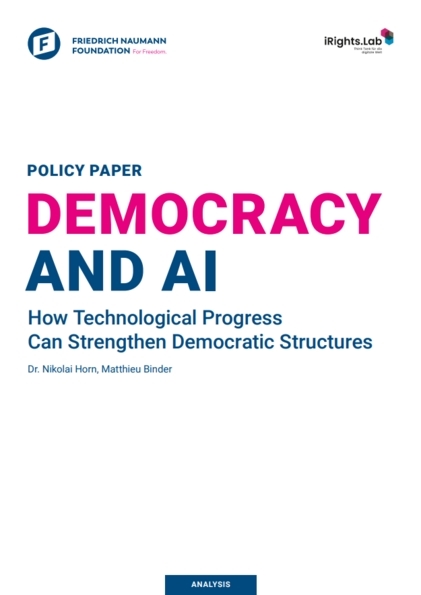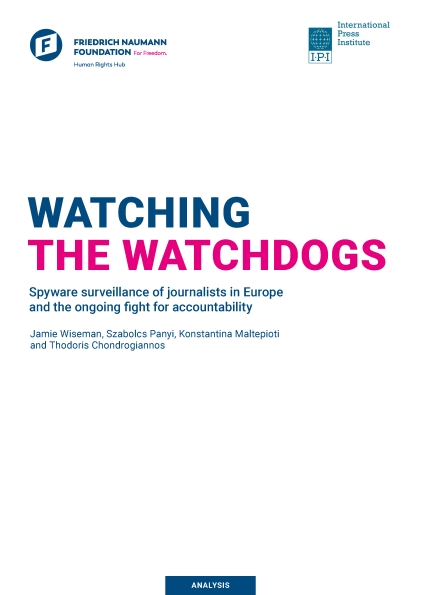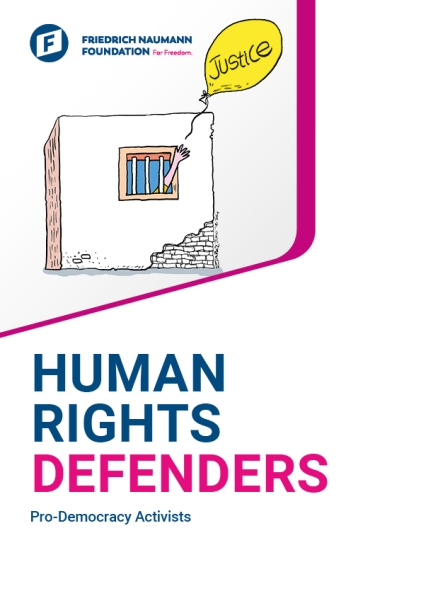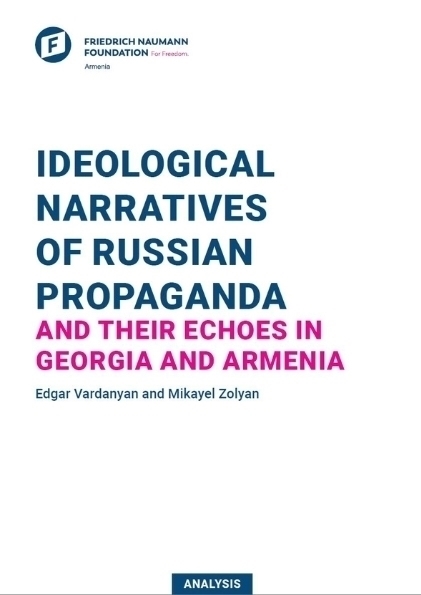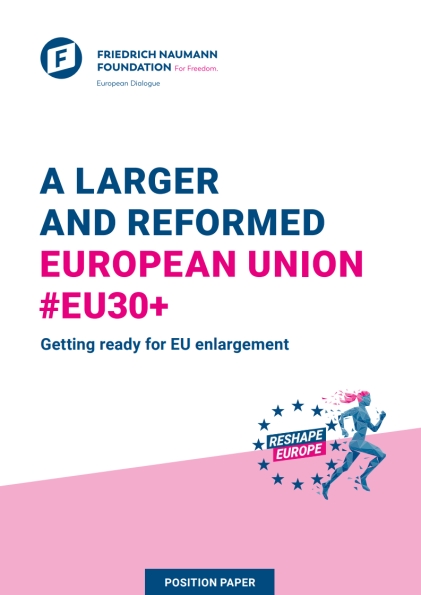#Up4Democracy
DEMOCRACIES
Challenges and Opportunities in a Changing World
International Conference
10 October 2024
15:00 – 18:30 h
dbb forum
Friedrichstraße 169, 10117 Berlin
The year 2024, coined a ‘super election year’, sets a record: roughly half of the world's population, and therefore more than ever before, will be allowed to go to the polls in around 60 countries to elect presidents and parliaments - sometimes more and sometimes less democratically. However, despite these figures, the number of liberal democracies is declining worldwide.
At our conference, international and German experts will discuss the current challenges and threats to democracies based on case studies from across the globe, including the USA, India, South Africa and, last but not least, Germany. We will be taking a close look in particular at young people and the dynamics of their participation in politics and in social causes.
How can the downward trend in democracy be halted and the resilience and attractiveness of democratic systems be strengthened in times of global systemic rivalry?
Which key factors can be identified as causal when analyzing democratic crises? What role do poor governance and socio-economic dissatisfaction play in the erosion of democratic stability?
And how can we succeed in mobilizing young people for democracy and freedom in a world increasingly characterized by digital debate spaces and social polarization?
These are essential questions of our time wich you are cordially invited to discuss with us. I look forward to your participation.
Kind regards,
Sabine Leutheusser-Schnarrenberger
Deputy Chair of the Board, Friedrich Naumann Foundation for Freedom
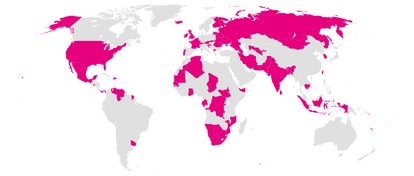
PROGRAM
Overview of the conference program
Thomas Hacker MdB
Spokesman for Media Policy, Free Democrats, German Bundestag
Keynote – Digital
The Transformative Power of Democracies in a Changing World
Prof. Dr. Armin Nassehi
Professor of General Sociology and Theory of Society, Ludwig Maximilian University Munich, Germany
Why Democracies Struggle: Understanding the Global Threats
Impulse
Nicola Schmidt
Executive Director, Democracy Reporting International
___________________________________________________
Ghazi Ben Ahmed, PhD
Mediterranean Development Initiative (MDI), Tunisia
Nino Kalandadze
Executive Director, Center for European Studies and Civic Education, Former Deputy Minister of Foreign Affairs, Georgia
Queenin Masuabi
Senior Political Reporter, Daily Maverick, South Africa
Vivian Schiller
Executive Director, Aspen Digital, USA
Moderator: Dr. Melinda Crane, Journalist and Political Scientist
16:45 h – Refreshment Break
The Future of Democracy - Youth Engagement in Politics and Society
Impulse
Dr. Regina von Görtz
Director, Democracy and Cohesion, Bertelsmann Foundation
___________________________________________________
Franziska Brandmann
Chairperson, Young Liberals Germany
Surabhi Hodigere
Spokesperson, Bharatiya Janata Party, India
Dimitra Papadopoulou
Board Member, The European Liberal Youth (LYMEC)
Dr. Martina Weyrauch
Director, Center for Civic Education Brandenburg State, Germany
Moderator: Dr. Melinda Crane, Journalist and Political Scientist
Issues in Other Regions of the World
Siegfried Herzog
Regional Director Latin America,
Friedrich Naumann Foundation for Freedom
Martin Kothé
Regional Director East- and Southeast Europe,
Friedrich Naumann Foundation for Freedom
Networking Reception
The event will be simultaneously translated English-German.
Our Speakers
-

Armin Nassehi holds the Chair of Sociology at Ludwig-Maximilians-Universität in Munich. Nassehi grew up in Germany and Iran and studied education, philosophy and sociology in Münster and Hagen. He received his doctorate in sociology in 1992, habilitated in 1994 and became senior assistant and private lecturer at the University of Münster. After holding temporary professorships at the Universities of Munich and Münster, he was appointed to the Chair of Sociology at Ludwig-Maximilians-Universität in 1998. As a lecturer, he was voted the best speaker at the university by his students and was a board member of the Munich Competence Center for Ethics (MKE). As one of Germany's most renowned sociologists, Armin Nassehi has been a sought-after guest on TV and talk shows as well as a speaker and consultant in business and culture for many years.
Prof. Dr. Armin Nassehi Professor of General Sociology and Theory of Society, Ludwig Maximilian University Munich, Germany -
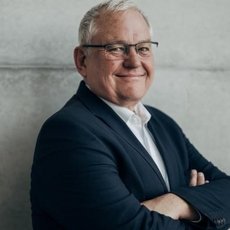
Thomas Hacker is Spokesman on European and Media Policies of the Free Democrats in the German Bundestag who has been serving as a member of the Bundestag from the state of Bavaria since 2017. Raised in Bayreuth (Bavaroia) Hacker studied business administration at the his hometown. From 2002 to 2016 Hacker was a partner in an auditing and tax consultancy firm before being elected to the German Bundestag. Currently he is a member of the Bundestag’s Committee on Cultural and Media Affairs and of the Committee on European Union Affairs.
Thomas Hacker MdB -
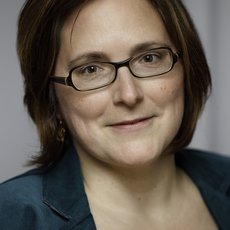
Nicola Schmidt is Executive Director of Democracy Reporting International (DRI), a Berlin-based independent non-profit organisation committed to defending, improving and strengthening democracy worldwide. She provides strategic direction and leadership to the organisation and ensures implementation and management of programmes and staff across DRI’s offices. With 25 years experience and background in international affairs, democratisation, human rights, and elections, she has advised governments and international organisations on electoral and legislative reform, devised methodologies and conducted trainings. As Human Dimension Adviser for Germany’s OSCE Chairmanship from 2015 to 2017 she designed and implemented the Chairmanship’s programme on human rights. In the late 1990s and early 2000s, she worked in post-conflict development and democratization, including in South Africa, Albania and South-Eastern Europe, for IFES Ltd in London and for World Vision. She holds a Diploma (Masters) in Political Science from the Freie Universität Berlin, Germany, and an MSc in Violence, Conflict and Development from the School of Oriental and African Studies of the University of London, UK.
Nicola Schmidt Executive Director, Democracy Reporting International -
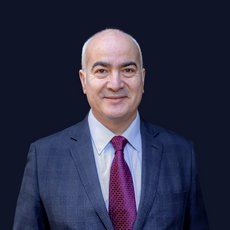
Ghazi Ben Ahmed graduated with a PhD in Economics from the University of Montpellier (France). Anan international trade expert, Dr. Ben Ahmed has devoted a significant part of his work and his CSO activities to bringing closer the EU and Mediterranean partners with a focus on North Africa, through research, analysis, policy prescription and advocacy activities/strategic communication in the region. He worked in several International organizations, European commission (RELEX, AIDCO and TRADE), UNCTAD (AFRICA Division) and African Development Bank (Private sector). After the revolution in Tunisia, he set up several initiatives such as US LEND (Leaders Engaged in New Democracies) and led the US Initiative “MENA Partnership for Democracy and Development”. Ghazi Ben Ahmed is currently leading the Mediterranean Development Initiative (MDI), an independent Think Tank born in 2013 in Tunisia and now also based in Brussels.
Ghazi Ben Ahmed, PhD Mediterranean Development Initiative (MDI), Tunisia -

Nino Kalandadze is a Co-founder and Executive Director of the Chavchavadze Center, the first civil society organization in Georgia modeled after European political foundations. From 2008 to 2012, Nino served as Deputy Minister of Foreign Affairs of Georgia, overseeing bilateral relations with 45 European countries. She was a member of the political party United National Movement from 2001 to 2018 (the ruling party from 2004 to 2012) and a board member of UNM from 2012 to 2018. Her current focus and field of research include Political Parties, the lack of intra-party democracy within Georgia’s Political Parties, Anti-Western Disinformation, and Georgia’s contemporary Foreign Policy.
Nino Kalandadze Executive Director, Center for European Studies and Civic Education, Former Deputy Minister of Foreign Affairs, Georgia -

Queenin Masuabi is a senior political journalist at the South African publication “The Daily Maverick”. Her recent work looks at the newly formed Government of National Unity in South Africa.Given her focus on national politics in South Africa, she has good insights into local political development. Additionally, perspectives on global issues which impact South Africa resonate with Queenin. Queenin attended the prestigious University of Witwatersrand and graduated with a BA in Politics & Psychology. The focus of her first degree was on conflict stability and state- building in post colonial Africa, political sociology and industrial psychology. Her second degree is in Journalism and Media studies.
Queenin Masuabi Senior Political Reporter, Daily Maverick, South Africa -
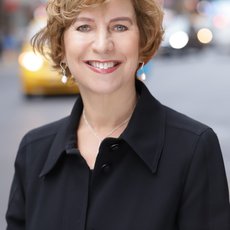
Vivian Schiller joined the Aspen Institute in January 2020 as Executive Director of Aspen Digital, which empowers policymakers, civic organizations, companies, and the public to be responsible stewards of technology and media in the service of an informed, just, and equitable world. A longtime executive at the intersection of journalism, media and technology, Schiller has held executive roles at some of the most respected media organizations in the world. Those include: President and CEO of NPR; Global Chair of News at Twitter; General Manager of NYTimes.com; Chief Digital Officer of NBC News; Chief of the Discovery Times Channel, a joint venture of The New York Times and Discovery Communications; and Head of CNN documentary and long form divisions. Documentaries and series produced under her auspices earned multiple honors, including three Peabody Awards, four Alfred I. DuPont-Columbia University Awards, and dozens of Emmys. Schiller is a member of the Council on Foreign Relations; and a Director of the Scott Trust, which owns The Guardian.
Vivian Schiller Executive Director, Aspen Digital, USA -

Dr. Regina von Görtz is Director for Democracy and Cohesion at the Bertelsmann Foundation, with a special focus on "Youth and Democracy." She is committed to promoting the participation of children and young people and developing sustainable strategies to foster fair future opportunities and the involvement of young people at all levels of government (federal, state, and local). In 2013, she earned her PhD in Public Administration and Economics from the University of Administrative Sciences in Speyer. In recent years, she has published on topics such as social justice, prevention, child and youth participation, civic engagement of young people, and the understanding of democracy. She lives in Düsseldorf. LinkedIn: www.linkedin.com/in/regina-von-goertz / Photo credit: © Ansichtssache_Britta Schröder
Dr. Regina von Görtz Director, Democracy and Cohesion, Bertelsmann Foundation -

Franziska Brandmann is the Federal Chairwoman of the Young Liberals and a member of the Federal Executive Board of the FDP (Free Democratic Party). She completed her Bachelor's degree in Political Science in Bonn after a study abroad program at Harvard University, and then pursued further studies in Oxford, where she graduated with a Master's degree in European Politics in 2020. In 2022, Brandmann founded a legal tech startup called SO DONE, which utilizes artificial intelligence to help victims of mass online hate to effectively defend themselves.
Franziska Brandmann Chairperson, Young Liberals Germany -
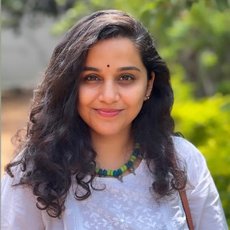
Surabhi Hodigere is the founder of the Naari Shakti Collective, an initiative dedicated to empowering and supporting women leaders to run for political office in Karnataka, India. This volunteer-driven organization equips women with the skills and resources necessary to navigate and excel in political roles, preparing them for increased political participation, particularly as the 33% reservation for women in legislature and parliament is implemented.Surabhi holds a Master's degree in Public Policy from Harvard University's Kennedy School of Government, specializing in technology policy. Her research on the governance of Digital Public Infrastructure was published during her time at Harvard. Currently, she is a Fellow at a Bengaluru-based policy think tank, where she contributes to critical discussions shaping India’s technological and governance landscape.Deeply engaged in grassroots initiatives and community empowerment, Surabhi also leads efforts within Resident Welfare Associations (RWAs) in Bengaluru, focusing on the sustainable utilization of public spaces. Her work is rooted in a steadfast commitment to advancing societal well-being, and she is recognized as a dynamic, young leader driving positive change in Karnataka's socio-political landscape.
Surabhi Hodigere Spokesperson, Bharatiya Janata Party, India -
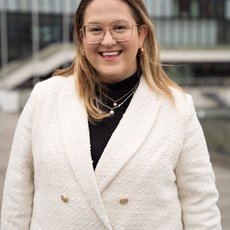
Dimitra Papadopoulou is a Social Sciences student from Germany currently serving as the Communications Officer of the LYMEC Bureau. She previously worked in Influencer Management and as a Social Media Manager for Members of the Federal German Parliament and North-Rhine-Westphalia´s State Parliament. As a child of migrants, Dimitra’s political passion project lies in education and bringing more empathy and cultural understanding into foreign policy issues. Currently, Dimitra is empowering young political changemakers to reclaim social media from the Far-Right and share their stories.
Dimitra Papadopoulou Board Member, The European Liberal Youth (LYMEC) -
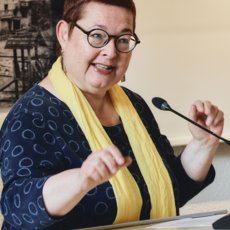
Dr. Martina Weyrauch was born in 1958 in East Berlin. After completing her vocational training, she studied law at the Humboldt University of Berlin and earned her doctorate in 1986 in international criminal law and international law. During the peaceful revolution of 1989, she was a member of the commission investigating abuse of office, corruption, and personal enrichment, and contributed as an expert to the Round Table discussions on a rehabilitation law for the GDR. In 1990, she served as an advisor on international legal matters related to German reunification in the office of the Prime Minister of the GDR, Lothar de Maizière, and participated in the 2+4 negotiations at the working level. After holding various positions in the Brandenburg state administration, she has been the head of the Brandenburg State Center for Civic Education since October 2000. In her work, she focuses on supporting citizens in taking responsibility for democracy and society. Further information: https://www.politische-bildung-brandenburg.de/
Dr. Martina Weyrauch Director, Center for Civic Education Brandenburg State, Germany -
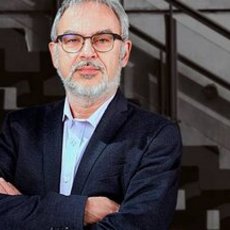
Siegfried Herzog, geb. 27.11.1962 in Biberach/Riss, 1982-84 Ausbildung zum Insmdustriekaufmann bei der Porsche AG, danach Studium der Volkswirtschaftslehre mit Schwerpunkt Regionalstudien Nordamerika an der Universität Tübingen und der Georgetown University. Mitgründer von Netz e.V., der wichtigsten deutschen NGO in Bangladesh. Seit 1994 bei der Friedrich-Naumann-Stiftung für die Freiheit, Projektassistent, danach Projektberater in Indien, 2002-06 Referatsleiter Asien, 2006-10 Projektleiter Philippinen, 2010-14 Regionalbüroleiter Südasien mit Sitz in Neu Delhi, 2014-18 Regionalbüroleiter Südost- und Ostasien mit Sitz in Bangkok, seither Regionalbüroleiter Lateinamerika mit Sitz in Mexiko-Stadt.
Siegfried Herzog Regional Director Latin America, Friedrich Naumann Foundation for Freedom -
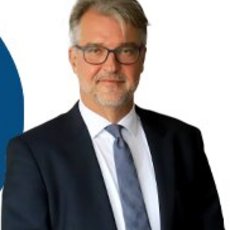 Martin Kothé Regional Director East- and Southeast Europe, Friedrich Naumann Foundation for Freedom
Martin Kothé Regional Director East- and Southeast Europe, Friedrich Naumann Foundation for Freedom -
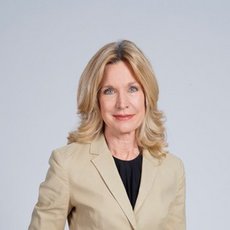
Dr. Melinda Crane has given speeches and moderated events and discussions for a wide range of international organizations and firms. An experienced TV anchor, she is senior political analyst at DW TV and also hosts the DW talk show “To the Point”. Dr. Crane studied history and political science at Brown University and law at Harvard. She wrote her dissertation on the political economy of development assistance at the Fletcher School of Law and Diplomacy. Her journalistic experience includes work for the “New York Times Magazine,” ”The Boston Globe Sunday Magazine,” “The Boston Globe,” the “Christian Science Monitor” and German newspapers and magazines.
Dr. Melinda Crane Journalist and Political Scientist
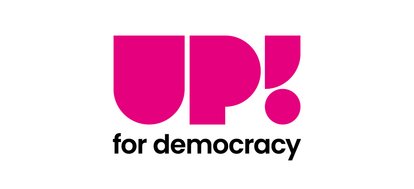
Democracy and AI
Watching the Watchdogs
Human Rights Defenders Pro-Democracy Activists
IDEOLOGICAL NARRATIVES OF RUSSIAN PROPAGANDA
A larger and reformed European Union #EU30+
The position paper takes a closer look at why EU enlargement matters for the European Union and the countries aspiring to join, evaluates the support that the EU provides to the candidates, and considers the EU reforms needed to ensure that a European Union of 30+ members remains functioning.

